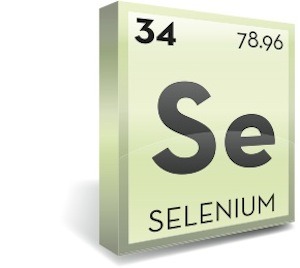The 7 Best Vegetarian Foods for Selenium |  |
| The 7 Best Vegetarian Foods for Selenium Posted: 13 Apr 2014 08:00 AM PDT  Selenium is a powerful trace mineral that everyone needs. Along with iodine, selenium is great for the thyroid. It also supports the immune system and is a powerful antioxidant. [1] [2] The Daily Recommended Intake is 55 micrograms for adults but some people consume more, depending on their needs (it’s best to stay under 400mcg/day). [3]
Although fish and meat are great sources of selenium, don't be fooled into thinking you can't get it from plants. As a matter of fact, there are an abundance of natural foods that are an extremely bioavailable source of selenium, including nuts, seeds, and green vegetables. At a glance, let’s take a look at the 7 best vegetarian sources of selenium. 1. Brazil NutsWithout a doubt, Brazil nuts are one of the best sources of selenium! Tasty, delicious, and loaded; one study showed that just two brazil nuts per day for 12 weeks raised selenium levels to a normal range. [4]
2. Shiitake/White Button MushroomShiitake mushrooms taste great and, in addition to providing selenium, they’re an excellent source of Vitamin D, antioxidants, and other essential trace minerals.
3. Lima/Pinto BeansPoll any group of third graders for their favorite foods and it’s unlikely that lima beans will be on the list. But, there’s no denying their nutritional potency. In addition to selenium, lima and pinto beans are a great source of protein and fiber.
4. Chia SeedsChia seeds are one of my favorite super foods. One of their interesting traits is that, when exposed to water, they expand and take on a gel-like consistency. It takes on any flavor and prompts a feeling of being full much faster than other foods. They’re a great source of fiber, amino acids, and a perfect balance of omega-3 and omega-6 fatty acids. [5]
5. Brown RiceIf you’re looking for a gluten-free grain, you have a few choices. Millet and quinoa are emerging in popularity, and brown rice is another great option. It’s an excellent, all-around source of essential nutrients, including complex carbohydrates, B vitamins, and soluble fiber.
6. Seeds (Sunflower, Sesame, and Flax)When it comes to nutritional potency, it’s hard to beat a handful of seeds! They’re rich in essential omega 3 & 6 fatty acids, protein, and fiber. They’re also little selenium power-ups, take your pick of sunflower seeds, sesame seeds, or flaxseed.
7. Broccoli, Cabbage, SpinachSelenium is just one of many nutrients you’ll find in green vegetables. In fact, greens are generally one of the best nutritional smorgasbords of minerals, vitamins, antioxidants, protein, calcium, magnesium, and chlorophyll available. If these aren’t the cornerstone of your diet, they need to be!
These are just a few vegetarian friendly sources of selenium that you can add to your diet to boost its nutritional value. Do you have other favorite foods you prefer that are a source of selenium? Leave a comment and let us know! -Dr. Edward F. Group III, DC, ND, DACBN, DCBCN, DABFM References:
The post The 7 Best Vegetarian Foods for Selenium appeared first on Natural Health & Organic Living Blog. |
| You are subscribed to email updates from Natural Health & Organic Living Blog To stop receiving these emails, you may unsubscribe now. | Email delivery powered by Google |
| Google Inc., 20 West Kinzie, Chicago IL USA 60610 | |
No comments:
Post a Comment